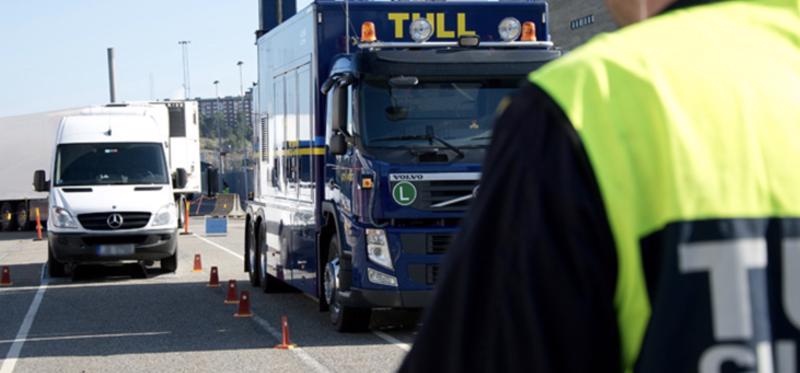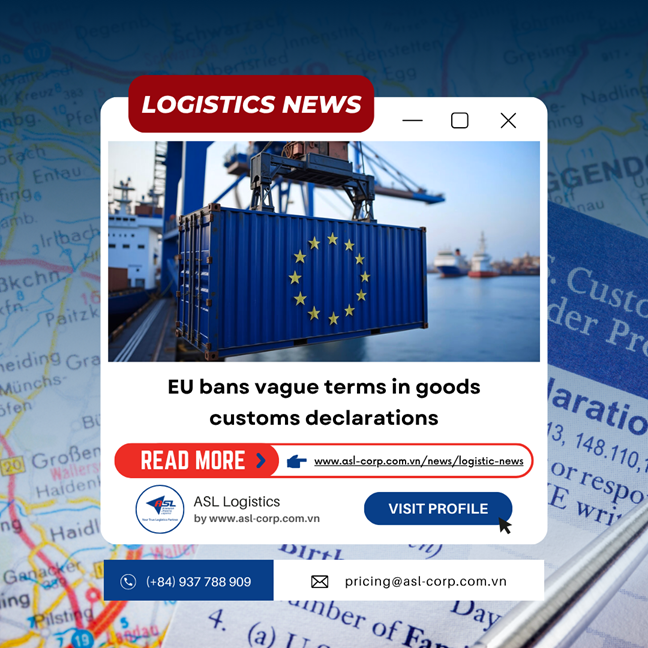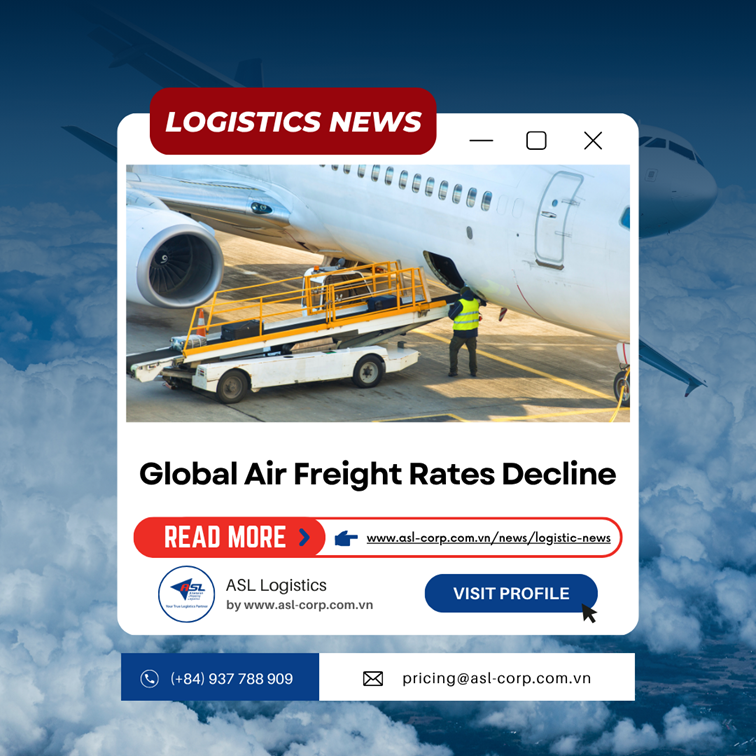U.S. President Donald Trump has just threatened to immediately impose a 100% tariff on goods imported from Canada if the country proceeds with a preliminary trade agreement with China. The move has raised concerns over potential disruptions to North America’s automotive and energy supply chains, despite commitments under the USMCA.
Logistic News
SWEDEN TIGHTENS IMPORT CHECKS: VIETNAMES FIRMS MUST FOLLOW ORIGIN RULES
21 May 2025
The Swedish Customs Authority has recently announced a series of measures to tighten the monitoring of imported goods, particularly shipments suspected of misdeclaring their origin to evade high tariffs imposed by the EU on U.S. products.

Sweden Announces Stricter Measures for Monitoring Imported Goods
The Vietnam Trade Office in Sweden, concurrently covering Denmark, Norway, Iceland, and Latvia, has reported that in response to the escalating trade tensions between the United States and the European Union, the Swedish Customs Authority has introduced a series of measures to strengthen the supervision of imported goods—particularly shipments suspected of misdeclaring their origin to evade the high tariffs imposed by the EU on U.S. products.
Specifically, a number of companies have been found transshipping goods through third countries or using suppliers that falsely declare the origin of goods to avoid duties. This is particularly prevalent in high-value product categories such as auto parts, cosmetics, electronics, and fashion. These fraudulent practices not only distort the market but also undermine the fairness and effectiveness of the EU’s tariff system.
Sweden, one of the EU countries with the highest trade-to-GDP ratios, has begun implementing random inspections, expanded customs declaration cross-checking, and in-depth audits for suspicious importers. Violations may result in criminal charges or the revocation of business licenses.
Current trade tensions are causing higher prices for European consumers, while compliant EU-based businesses face unfair competition from fraudulent imports.
In light of these developments, the Vietnam Trade Office emphasizes that although Vietnam is not directly involved in the U.S.–EU trade dispute, this serves as a clear warning of the importance of full compliance with EU rules of origin and customs standards—especially as Vietnam is benefiting significantly from the EVFTA (EU–Vietnam Free Trade Agreement).
Vietnamese exporters must ensure transparency in their supply chains and in certificates of origin (CO). They are encouraged to apply digital traceability systems (such as blockchain or QR code tracking), particularly in sensitive sectors such as textiles, agriculture, and electronic components.
It is also crucial that Vietnamese companies work directly with reputable Swedish importers and avoid unclear intermediaries.
Moreover, businesses should regularly stay updated on regulatory changes from the EU and Sweden through the trade office, industry associations, and the RASFF (Rapid Alert System for Food and Feed).
Finally, the Trade Office notes that as the EU accelerates its push toward a more responsible trade system, Vietnamese companies with strong compliance capabilities, transparent products, and environmentally friendly practices will be highly valued—and may even replace substandard suppliers in the long run.
Source: VnEconomy

Head Office
ASL Hồ Chí Minh
Số 31/34A Ung Văn Khiêm, Phường Thạnh Mỹ Tây, TP. Hồ Chí Minh, Việt Nam
 Công Ty Cổ Phần Giao Nhận Vận Tải Mỹ Á
Công Ty Cổ Phần Giao Nhận Vận Tải Mỹ Á
 (+84)28 3512 9759
(+84)28 3512 9759
 (+84)28 3512 9758
(+84)28 3512 9758
 pricing@asl-corp.com.vn
pricing@asl-corp.com.vn
 mdirector@asl-corp.com.vn
mdirector@asl-corp.com.vn
 www.asl-corp.com.vn
www.asl-corp.com.vn
LOGISTICS SERVICES













.png)
.png)

.png)


